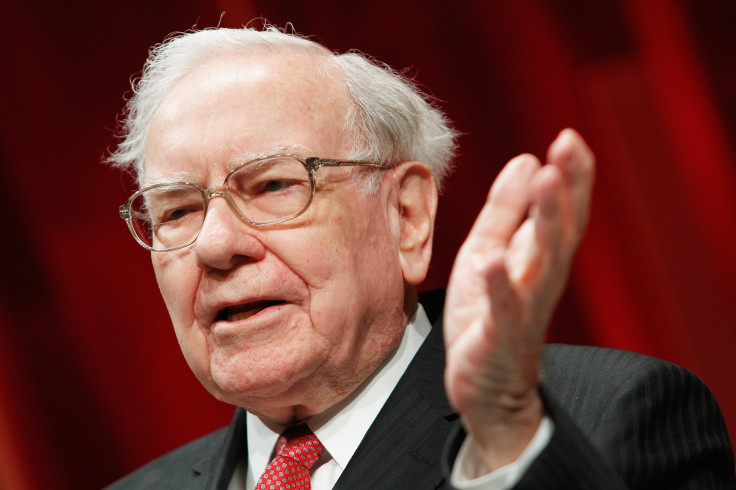Warren Buffett Riled By US Presidential Candidates Who Bad-Mouth Economy

Warren Buffett bemoaned the “negative drumbeat” on the U.S. economy from presidential candidates in his annual Berkshire Hathaway Inc. shareholder letter Saturday, saying they are misleading Americans into believing their children will be worse off then they are. “It’s an election year, and candidates can’t stop speaking about our country’s problems (which, of course, only they can solve),” Buffett wrote, italicizing “they” for emphasis.
As a result of their dour outlook on the U.S. economy, many Americans now believe their children will not live as prosperously as they themselves do, the 85-year-old Buffett said. “That view is dead wrong: The babies being born in America today are the luckiest crop in history,” Buffett said.
Buffett did not single out any presidential candidates by name. The billionaire in December officially threw his backing behind Hillary Clinton, a Democrat.
“During presidential elections where no incumbent is running, both sides who are running for president always say they are the ones to solve the nation’s problems and point out what those problems are,” said Bill Smead, who invests $2.1 billion at Smead Capital Management in Seattle.
Republican presidential candidate Donald Trump, who won New Jersey Gov. Chris Christie’s endorsement Friday, has offered a bleak assessment of the U.S. economy, repeatedly saying it is in a “bubble” that he hopes will pop before he takes office. “I don’t want to inherit all this stuff,” he has said.
In his letter, Buffett said “some commentators bemoan our current 2 percent per year growth” in real gross domestic product “and, yes, we would all like to see a higher rate.”
But Buffett said the U.S. population is growing about 0.8 percent per year, and that 2 percent GDP growth equates to a 1.2 percent per capita growth rate. “That may not sound impressive,” he said. “But in a single generation of, say, 25 years, that rate of growth leads to a gain of 34.4 percent in real GDP per capita.”
Buffett, whose home in Omaha, Nebraska, sits on less than an acre, said society has advanced significantly since he grew up during and after the Great Depression.
“All families in my upper middle-class neighborhood regularly enjoy a living standard better than that achieved by John D. Rockefeller Sr. at the time of my birth,” he said. “His unparalleled fortune couldn’t buy what we now take for granted, whether the field is — to name just a few — transportation, entertainment, communication or medical services. Rockefeller certainly had power and fame; he could not, however, live as well as my neighbors now do.”
© Copyright Thomson Reuters 2024. All rights reserved.











